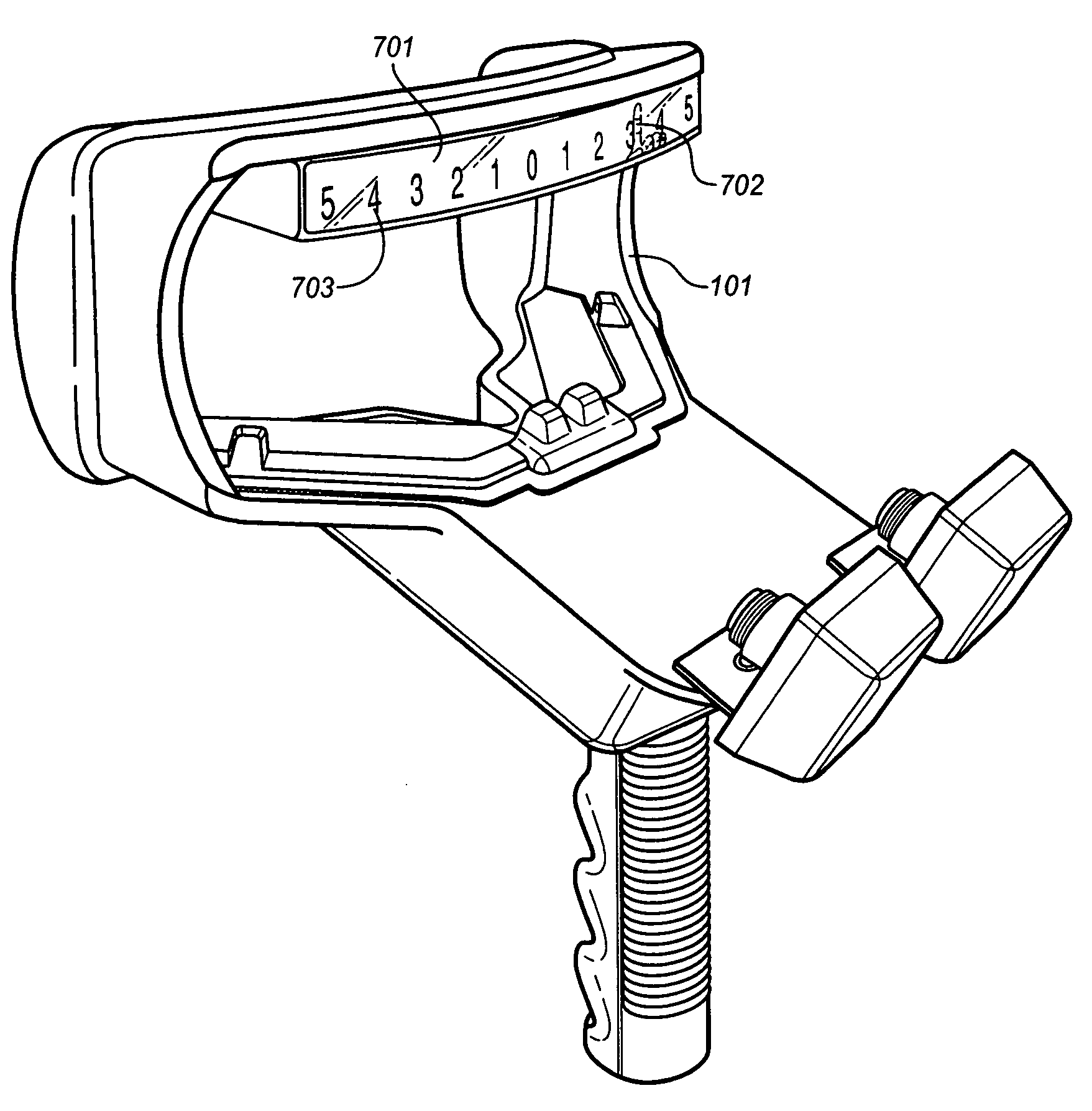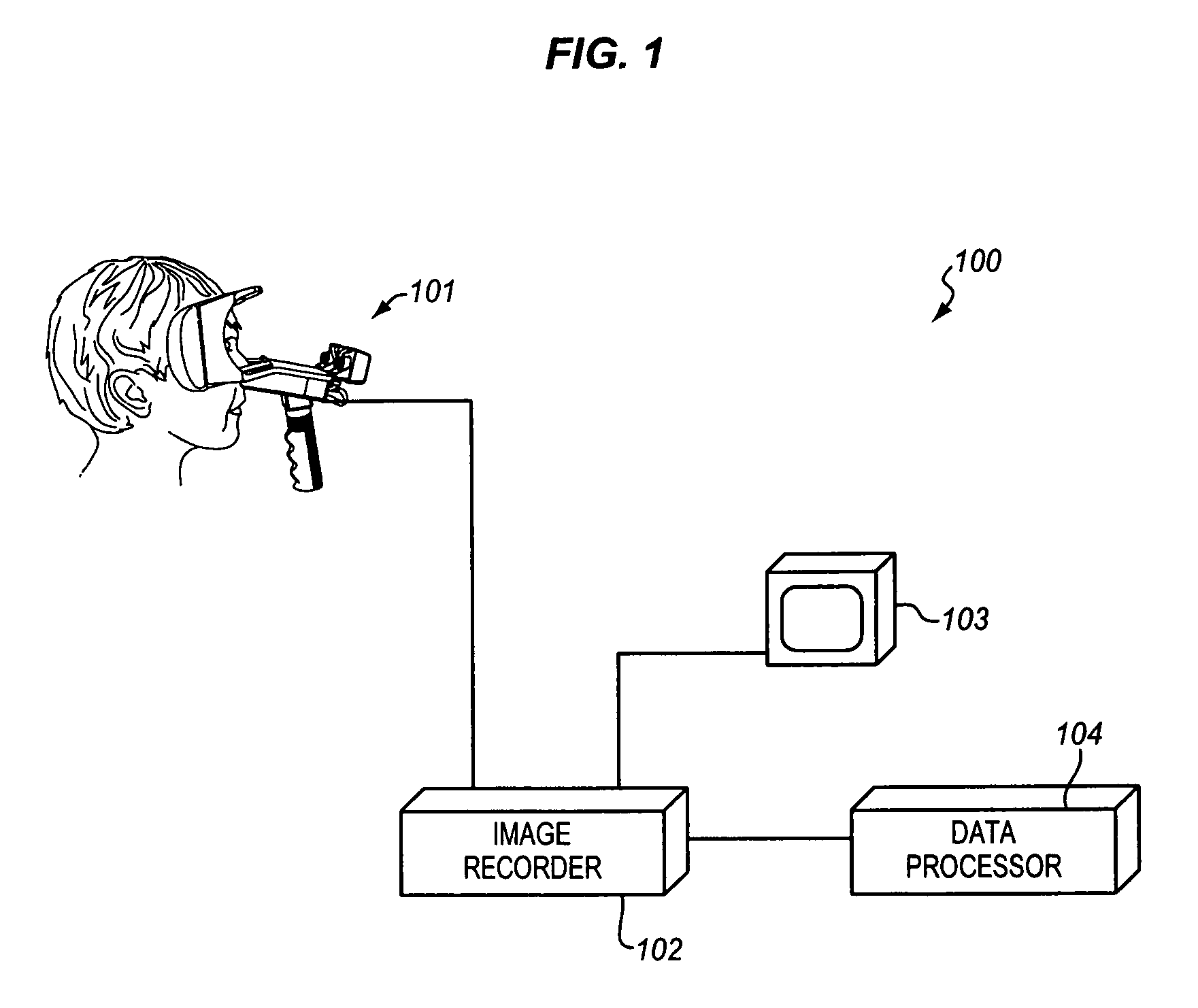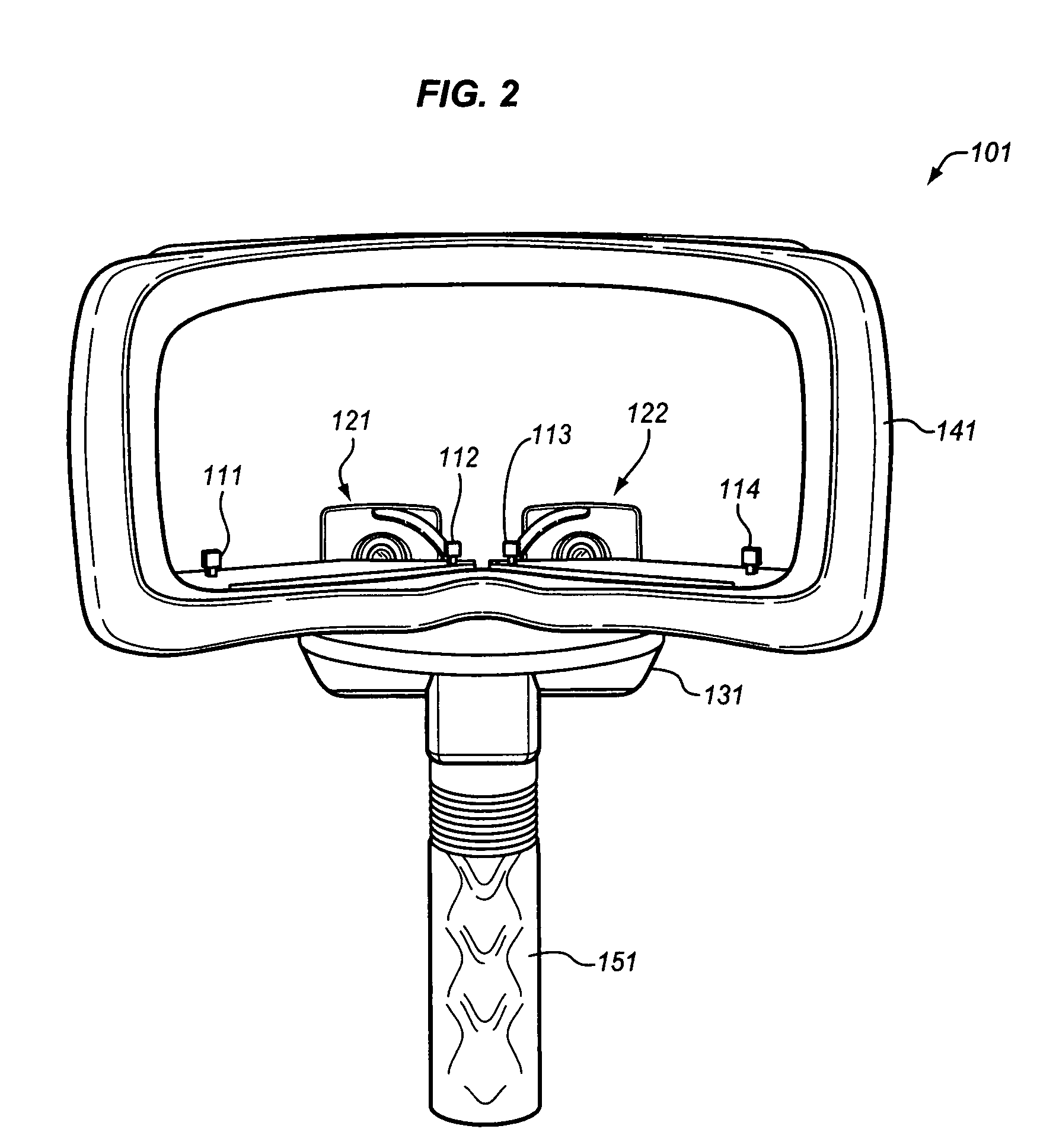Image-based system to observe and document eye responses having a reflective protractor for measurement of stimulus position
a technology of eye response and protractor, which is applied in the field of determining the impairment level of a subject, can solve the problems of subjective and possibly tainted inability to maintain the subject's gaze, and eye movements become ‘jerky', so as to improve the accuracy and reliability of these measurements, and fast and accurately localize the pupil
- Summary
- Abstract
- Description
- Claims
- Application Information
AI Technical Summary
Benefits of technology
Problems solved by technology
Method used
Image
Examples
Embodiment Construction
[0017]In determining whether a subject is impaired due to the use of alcohol or drugs, or whether the subject is suffering from sleep deprivation or other medical impairing condition, the measurement of eye gaze tracking and the monitoring of eye behavior (e.g., blink rate, gaze, etc.) can be used to determine a subject's alertness and attention.
[0018]The accuracy and reliability of these measurements are subjective and can be tainted by the ambient conditions under which the test is administered. Ambient conditions include the inability to maintain the subject's gaze in a fixed direction, erratic lighting conditions, and the subjective nature of the test administrator's administration of the test.
System Characteristics
[0019]In order to minimize the impact of ambient conditions, the present image-based system to observe and document eye responses includes a headset that has a faceplate against which the subject places their face. The headset increases the accuracy and reliability of...
PUM
 Login to View More
Login to View More Abstract
Description
Claims
Application Information
 Login to View More
Login to View More - R&D
- Intellectual Property
- Life Sciences
- Materials
- Tech Scout
- Unparalleled Data Quality
- Higher Quality Content
- 60% Fewer Hallucinations
Browse by: Latest US Patents, China's latest patents, Technical Efficacy Thesaurus, Application Domain, Technology Topic, Popular Technical Reports.
© 2025 PatSnap. All rights reserved.Legal|Privacy policy|Modern Slavery Act Transparency Statement|Sitemap|About US| Contact US: help@patsnap.com



